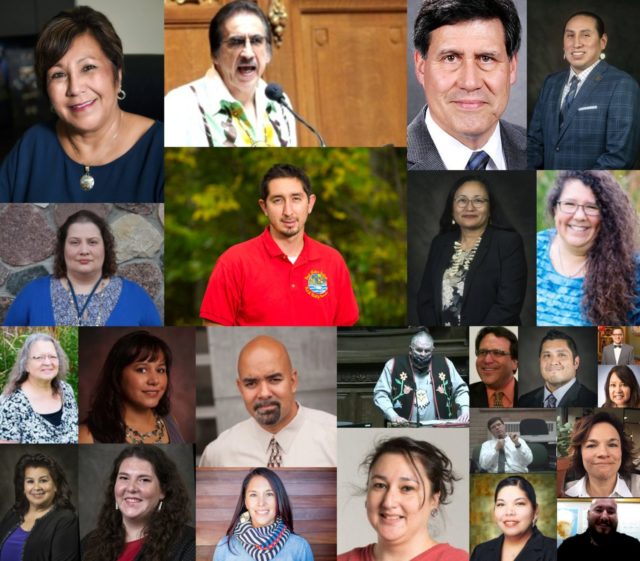Every year since our founding five years ago, we have recognized Wisconsin’s most influential Black and Latino leaders. In 2020, we extended that recognition to our Native American and Asian American brothers and sisters. These lists have become the most anticipated thing we do. Every year, I’ve intended these lists to highlight the beauty of the diversity across our state. I want kids here in Wisconsin to see role models of people who are succeeding, to know that it’s possible for African Americans and Latinos to achieve great things here.
Every year, people tell me we’ll run out of people to recognize. And every year, after we publish our list, I get emails and texts with more names: why did you leave out this person, how did you miss that person. And every year it becomes clear: there are more people of every ethnicity in Wisconsin doing the real work than we could ever recognize.
This week we shine a statewide spotlight on the dedicated leaders of Wisconsin’s indigenous communities. The people we highlight this week are elected leaders, business leaders, community leaders, doing difficult, important work, often in the face of discrimination and literally generations of oppression.
And there will be more — later this year, we will publish our first list of Wisconsin’s most influential Asian Americans, in addition to new editions of our lists of the most powerful Black and Latino leaders.
We are also aware that this list, like every other, is not comprehensive. There are, without a doubt, more than 24 influential Native American leaders doing good work in Wisconsin. We hope you will let us know about people in your community who we can include on future lists. For now, though, we just want to introduce you to a few of the people doing the work, often behind the scenes and without the accolades, across Wisconsin.
You might know a few of these names, but there’s a good chance that most of them will be new to you. I urge you to get to know them. Reach out to those living and working in your communities. Learn from them, network, create partnerships. And spread the word — let others in your network know that we have people of all ethnicities living and working across Wisconsin to make this state a good and prosperous place for all.
Henry Sanders, Jr
CEO, 365 Media Foundation
Publisher, Madison365 and FoxValley365
 Cooninaziwi Tracy Littlejohn, a member of the Ho-Chunk Nation, is Racial Justice Facilitator at YWCA La Crosse, a role she’s held since January of 2018, and youth coordinator for the Ho-Chunk Nation for the past six years. She works with students at the Ho-Chunk Youth and Learning Center and co-advises the UW-L Native American Student Association. Littlejohn also serves on several local boards and committees, including the Kickapoo Valley Reserve Management Board, the Disparities in Juvenile Justice-Best Practices Committee, and the Mayor’s Taskforce on Racism. She was named the YWCA’s “Sustaining Leader of Today” in 2019 and was nominated the same year for the Linda Riddle Community Advocate of the Year Award. She was honored in 2020 with the Martin Luther King Jr. Leadership Award at the MLK Community Celebration at Viterbo University.
Cooninaziwi Tracy Littlejohn, a member of the Ho-Chunk Nation, is Racial Justice Facilitator at YWCA La Crosse, a role she’s held since January of 2018, and youth coordinator for the Ho-Chunk Nation for the past six years. She works with students at the Ho-Chunk Youth and Learning Center and co-advises the UW-L Native American Student Association. Littlejohn also serves on several local boards and committees, including the Kickapoo Valley Reserve Management Board, the Disparities in Juvenile Justice-Best Practices Committee, and the Mayor’s Taskforce on Racism. She was named the YWCA’s “Sustaining Leader of Today” in 2019 and was nominated the same year for the Linda Riddle Community Advocate of the Year Award. She was honored in 2020 with the Martin Luther King Jr. Leadership Award at the MLK Community Celebration at Viterbo University.
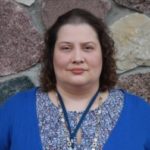 Dr. Estelle Ostgard is a family physician at the Menominee Tribal Clinic in the village of Keshena on the Menominee Reservation. She attended the University of South Dakota and has experience in treating chronic illness of adult and pediatric patients, prenatal care, women’s health, sports medicine, geriatrics, skin, and psychiatric care.
Dr. Estelle Ostgard is a family physician at the Menominee Tribal Clinic in the village of Keshena on the Menominee Reservation. She attended the University of South Dakota and has experience in treating chronic illness of adult and pediatric patients, prenatal care, women’s health, sports medicine, geriatrics, skin, and psychiatric care.
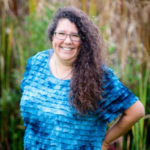 Beverly Scow, Oneida, Kwickseutaineuk Ah-kwa-mish First Nation, of the Kwakwakawak Peoples, is the Assistant Director of the Wise Women Gathering Place (WWGP), a non-profit organization that offers “Native American culturally-specific services” to those affected by violence, specifically sexual violence; She is considered one of the founding members of the organization. Having lived on the Oneida Nation Reservation in Wisconsin since 1991, Scow began her work offering help to the community as the Administrative Assistant for the Tsyunhekwa Oneida Tribe of Wisconsin and as an apprentice midwife. At WWGP, Scow practices the Technology of Participation (ToP) Facilitation Method to support groups of historically marginalized and abused individuals through “focused conversations, consensus workshops, action planning, strategic planning, conflict resolution, and virtual facilitation.” Beverly is a Certified ToP Facilitator and a Mentor ToP Trainer and has an Honorary Degree from the Native Indian Teaching Education Program (NITEP) at the University of British Columbia.
Beverly Scow, Oneida, Kwickseutaineuk Ah-kwa-mish First Nation, of the Kwakwakawak Peoples, is the Assistant Director of the Wise Women Gathering Place (WWGP), a non-profit organization that offers “Native American culturally-specific services” to those affected by violence, specifically sexual violence; She is considered one of the founding members of the organization. Having lived on the Oneida Nation Reservation in Wisconsin since 1991, Scow began her work offering help to the community as the Administrative Assistant for the Tsyunhekwa Oneida Tribe of Wisconsin and as an apprentice midwife. At WWGP, Scow practices the Technology of Participation (ToP) Facilitation Method to support groups of historically marginalized and abused individuals through “focused conversations, consensus workshops, action planning, strategic planning, conflict resolution, and virtual facilitation.” Beverly is a Certified ToP Facilitator and a Mentor ToP Trainer and has an Honorary Degree from the Native Indian Teaching Education Program (NITEP) at the University of British Columbia.
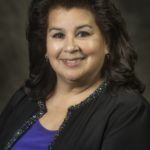 Jennifer Webster is a member of the Oneida Nation and a member of its Council. She has also served as the Oneida Nation’s health liaison and participated with the Indian Health Service, the Wisconsin Department of Health Services, the U.S. Department of Health and Human Services, and the Centers for Medicare and Medicaid Services. She was also an alternative representing the Bemidji Area on the Indian Health Care Improvement Fund Workgroup.
Jennifer Webster is a member of the Oneida Nation and a member of its Council. She has also served as the Oneida Nation’s health liaison and participated with the Indian Health Service, the Wisconsin Department of Health Services, the U.S. Department of Health and Human Services, and the Centers for Medicare and Medicaid Services. She was also an alternative representing the Bemidji Area on the Indian Health Care Improvement Fund Workgroup.
 Isaiah Funmaker serves as supervisor of the 11th district on the Jackson County Board. He also works as a lands specialist at Ho-Chunk Nation and puts out fires as a firefighter at BIA Forestry & Wildland Fire Management – Great Lakes Agency. Funmaker lives in Black River Falls, WI with his family. He was a panelist at the first-ever Men’s Leadership Summit, hosted in April 2021 by Madison365.
Isaiah Funmaker serves as supervisor of the 11th district on the Jackson County Board. He also works as a lands specialist at Ho-Chunk Nation and puts out fires as a firefighter at BIA Forestry & Wildland Fire Management – Great Lakes Agency. Funmaker lives in Black River Falls, WI with his family. He was a panelist at the first-ever Men’s Leadership Summit, hosted in April 2021 by Madison365.
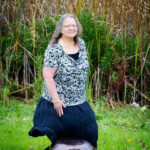 Alice Skenandore is a member of the Lac Courte Oreilles Ojibwe Nation and founder and executive director of The Wise Women Gathering Place in Green Bay. She founded the nonprofit in 1998 and since then it has grown to encompass shelters, safe parking programs, youth services, bullying prevention and programs for building better relationships and healing historical trauma. Skenandore was also a midwife for 27 years and attended over 740 home births.
Alice Skenandore is a member of the Lac Courte Oreilles Ojibwe Nation and founder and executive director of The Wise Women Gathering Place in Green Bay. She founded the nonprofit in 1998 and since then it has grown to encompass shelters, safe parking programs, youth services, bullying prevention and programs for building better relationships and healing historical trauma. Skenandore was also a midwife for 27 years and attended over 740 home births.
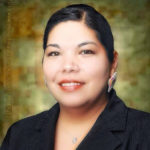 Melinda Danforth is the Intergovernmental Affairs Director for the Oneida Nation Office of Intergovernmental Affairs & Communications (IGAC). Danforth has been serving the Oneida Nation legislatively for nearly two decades. She began her work as an elected official, serving as an Oneida Nation Councilmember from 2006 to 2014. From then until 2017, Danforth was the Oneida Nation Vice Chairwoman. She has a BBA in Accounting and Business/Management from the National American University.
Melinda Danforth is the Intergovernmental Affairs Director for the Oneida Nation Office of Intergovernmental Affairs & Communications (IGAC). Danforth has been serving the Oneida Nation legislatively for nearly two decades. She began her work as an elected official, serving as an Oneida Nation Councilmember from 2006 to 2014. From then until 2017, Danforth was the Oneida Nation Vice Chairwoman. She has a BBA in Accounting and Business/Management from the National American University.
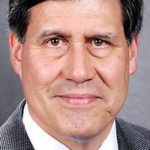 Edmund Manydeeds, an attorney with Manydeeds Law S.C. in Eau Claire, is currently serving as president on the University of Wisconsin System Board of Regents where he designates Board committee membership, signs all diplomas and contracts issued by the Board, and speaks on behalf of the Board with the Governor and legislative groups. Manydeeds, a member of the Standing Rock Sioux tribe, is the first Native board president. A graduate of the University of Wisconsin-Superior, Manydeeds earned his law degree from the University of Wisconsin-Madison and has been practicing law since 1979. He was appointed and confirmed in the spring of 2010 to the University of Wisconsin System Board of Regents and served a 7-year term. Manydeeds was reappointed in 2019 to serve a second 7-year term.
Edmund Manydeeds, an attorney with Manydeeds Law S.C. in Eau Claire, is currently serving as president on the University of Wisconsin System Board of Regents where he designates Board committee membership, signs all diplomas and contracts issued by the Board, and speaks on behalf of the Board with the Governor and legislative groups. Manydeeds, a member of the Standing Rock Sioux tribe, is the first Native board president. A graduate of the University of Wisconsin-Superior, Manydeeds earned his law degree from the University of Wisconsin-Madison and has been practicing law since 1979. He was appointed and confirmed in the spring of 2010 to the University of Wisconsin System Board of Regents and served a 7-year term. Manydeeds was reappointed in 2019 to serve a second 7-year term.
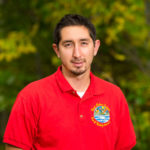 Dylan Jennings, or Bizhikiins meaning “young buffalo” in Ojibwemowin, is the Director of the Public Information Office of the Great Lakes Indian Fish and Wildlife Commission. He is also a Tribal Council Member for the Bad River Band of Lake Superior Ojibwe. Jennings lives in Odanah, Wisconsin.
Dylan Jennings, or Bizhikiins meaning “young buffalo” in Ojibwemowin, is the Director of the Public Information Office of the Great Lakes Indian Fish and Wildlife Commission. He is also a Tribal Council Member for the Bad River Band of Lake Superior Ojibwe. Jennings lives in Odanah, Wisconsin.
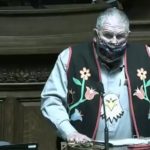 John D. Johnson is the president of Lac du Flambeau Band of Lake Superior Chippewa Indians, elected in October 2020. Johnson is also chair of the Voigt Intertribal Task Force committee. Johnson delivered the 2021 State of the Tribes Address in May, where he talked about the issues the Native American communities and tribes are facing during the pandemic including mental health concerns and the strategies he’s enforcing to challenge racism and discrimination.
John D. Johnson is the president of Lac du Flambeau Band of Lake Superior Chippewa Indians, elected in October 2020. Johnson is also chair of the Voigt Intertribal Task Force committee. Johnson delivered the 2021 State of the Tribes Address in May, where he talked about the issues the Native American communities and tribes are facing during the pandemic including mental health concerns and the strategies he’s enforcing to challenge racism and discrimination.
 Ron Jetty, a member of the Spirit Lake Dakota and Turtle Mountain Chippewa, is executive director of Information Technology Academy at the Division of Information Technology (DoIT) at the University of Wisconsin-Madison, and Assistant Director of DoIT Academic Technology. He is a member of the UW’s Native Nations Strategic Working Group. Prior to taking that role in 2015, he served as director of PK-16 initiatives for the entire UW System and spent 14 years as an instruction and professional development consultant at the Wisconsin Education Association Council. He holds a PhD in curriculum and instruction from the UW-Madison.
Ron Jetty, a member of the Spirit Lake Dakota and Turtle Mountain Chippewa, is executive director of Information Technology Academy at the Division of Information Technology (DoIT) at the University of Wisconsin-Madison, and Assistant Director of DoIT Academic Technology. He is a member of the UW’s Native Nations Strategic Working Group. Prior to taking that role in 2015, he served as director of PK-16 initiatives for the entire UW System and spent 14 years as an instruction and professional development consultant at the Wisconsin Education Association Council. He holds a PhD in curriculum and instruction from the UW-Madison.
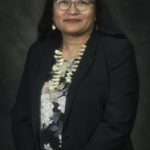 Ethel “Marie” Summers is a councilwoman for the Oneida Nation Business Committee (OBC). Summers began her career at the Oneida Health Center eventually finding herself in Human Resources, and from then her “career was human resources driven,” Summers said, according to her bio. She was the HR Director for a tribe in California and worked HR and HR Director roles with the Navajo in New Mexico, the Quinault Indian Nation in Washington, and the Saginaw Chippewa in Michigan. While pursuing an education in law, Summers’ interests shifted and, while still working as a loan officer with Comprehensive Housing then as a trial clerk on the Oneida Judiciary, entered herself into the running for her current position. Summers received her GED and her associate degree in Management Development from Milwaukee Area Technical College. She has a degree in Business Administration from Concordia University and is currently pursuing a master’s degree in Indigenous Law Legal Studies.
Ethel “Marie” Summers is a councilwoman for the Oneida Nation Business Committee (OBC). Summers began her career at the Oneida Health Center eventually finding herself in Human Resources, and from then her “career was human resources driven,” Summers said, according to her bio. She was the HR Director for a tribe in California and worked HR and HR Director roles with the Navajo in New Mexico, the Quinault Indian Nation in Washington, and the Saginaw Chippewa in Michigan. While pursuing an education in law, Summers’ interests shifted and, while still working as a loan officer with Comprehensive Housing then as a trial clerk on the Oneida Judiciary, entered herself into the running for her current position. Summers received her GED and her associate degree in Management Development from Milwaukee Area Technical College. She has a degree in Business Administration from Concordia University and is currently pursuing a master’s degree in Indigenous Law Legal Studies.
 Justin Lepscier is a member of the Menominee Nation and is a grants financial analyst with FSA, an investment group that provides investment management and wealth planning for Indian tribes and high net worth individuals. He moved to that position in July 2021, after being the Finance Manager for the Menominee Nation for more than two years. He is also the board chairman of the Wolf River Development Co., which operates current non-gaming tribally owned businesses and looks for new business opportunities both on and off the reservation.
Justin Lepscier is a member of the Menominee Nation and is a grants financial analyst with FSA, an investment group that provides investment management and wealth planning for Indian tribes and high net worth individuals. He moved to that position in July 2021, after being the Finance Manager for the Menominee Nation for more than two years. He is also the board chairman of the Wolf River Development Co., which operates current non-gaming tribally owned businesses and looks for new business opportunities both on and off the reservation.
 Dr. Lisa Poupart is an associate professor of First Nations Studies, Women’s and Gender Studies, and Humanities at UW Green Bay and a member of the Lac Du Flambeau Band of Lake Superior Anishinaabeg. Dr. Poupart’s work is concerned with healing First Nations generational historic trauma and she is also involved in a number of initiatives to standardize First Nations Studies curriculum in K-16. Her collaborative book “Connective Pedagogy: Elder Epistemology, Oral Tradition and Community” explores the traditional knowledge and teaching methodology of the Tribal World (2013, Aboriginal Issues Press/University of Manitoba). Dr. Poupart works with First Nations oral traditional elders and First Nations youth in higher education settings.
Dr. Lisa Poupart is an associate professor of First Nations Studies, Women’s and Gender Studies, and Humanities at UW Green Bay and a member of the Lac Du Flambeau Band of Lake Superior Anishinaabeg. Dr. Poupart’s work is concerned with healing First Nations generational historic trauma and she is also involved in a number of initiatives to standardize First Nations Studies curriculum in K-16. Her collaborative book “Connective Pedagogy: Elder Epistemology, Oral Tradition and Community” explores the traditional knowledge and teaching methodology of the Tribal World (2013, Aboriginal Issues Press/University of Manitoba). Dr. Poupart works with First Nations oral traditional elders and First Nations youth in higher education settings.
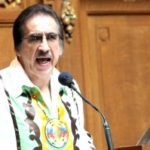 Gary Besaw of the Menominee Nation, Bear Clan, is director of the Menominee Tribal Department of Agriculture and Food Systems (DAFS), and the Menominee Tribal Food Distribution Department. The primary function of the DAFS is to provide regulatory oversight, assistance, and development support to individual, institutional and tribal agricultural and food system initiatives to create sustainable and resilient food and economic diversification systems. Besaw has served for 15 years on the Menominee Tribal Legislature, twice as Tribal Chairman, also as Vice-Chairman and Secretary. He has worked serving Native American K-12 education as Superintendent, Administrator, Vice-Principal, Curriculum Coordinator, Art Instructor, and as a Tribal College Dean of Student Services. Besaw holds an MS in Education Administration from UW-Madison, and a BS in K-12 Art Education from UW-Stout.
Gary Besaw of the Menominee Nation, Bear Clan, is director of the Menominee Tribal Department of Agriculture and Food Systems (DAFS), and the Menominee Tribal Food Distribution Department. The primary function of the DAFS is to provide regulatory oversight, assistance, and development support to individual, institutional and tribal agricultural and food system initiatives to create sustainable and resilient food and economic diversification systems. Besaw has served for 15 years on the Menominee Tribal Legislature, twice as Tribal Chairman, also as Vice-Chairman and Secretary. He has worked serving Native American K-12 education as Superintendent, Administrator, Vice-Principal, Curriculum Coordinator, Art Instructor, and as a Tribal College Dean of Student Services. Besaw holds an MS in Education Administration from UW-Madison, and a BS in K-12 Art Education from UW-Stout.
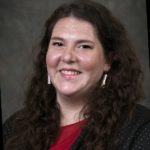 Angela Miller is the Chief of Staff and Assistant Chancellor of Diversity, Equity and Inclusion (DEI), and Chief Diversity Officer at UW-Platteville. She has been at University of Wisconsin-Platteville since 2011 and she became assistant chancellor in 2018. Her work at UW-Platteville involves fostering programs to support underserved populations, including a STEM Discovery Outreach Program and a new Hispanic outreach program. She was honored with the UW System Regents’ Diversity Award in 2017.
Angela Miller is the Chief of Staff and Assistant Chancellor of Diversity, Equity and Inclusion (DEI), and Chief Diversity Officer at UW-Platteville. She has been at University of Wisconsin-Platteville since 2011 and she became assistant chancellor in 2018. Her work at UW-Platteville involves fostering programs to support underserved populations, including a STEM Discovery Outreach Program and a new Hispanic outreach program. She was honored with the UW System Regents’ Diversity Award in 2017.
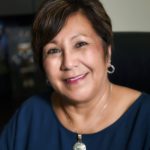 Deborah Thundercloud is general manager of the Oneida Nation, a role she returned to 2019. Previous to that she was chief of staff at the National Indian Gaming Association. Thundercloud has served in many roles within the Oneida Nation, including as Chairwoman from 1993 to 1999, Vice-chairwoman from 1990-1993 and as Oneida’s General Manager from 2006-2011. Prior to serving the Oneida Nation in her role as General Manager, she was an executive with Bellin Health overseeing the Support Care Center; which consisted of engineering, facilities, food service and purchasing, biomedical engineering and patient ancillary services. She earned a bachelor’s degree from UW-Green Bay and master’s degree from Marquette.
Deborah Thundercloud is general manager of the Oneida Nation, a role she returned to 2019. Previous to that she was chief of staff at the National Indian Gaming Association. Thundercloud has served in many roles within the Oneida Nation, including as Chairwoman from 1993 to 1999, Vice-chairwoman from 1990-1993 and as Oneida’s General Manager from 2006-2011. Prior to serving the Oneida Nation in her role as General Manager, she was an executive with Bellin Health overseeing the Support Care Center; which consisted of engineering, facilities, food service and purchasing, biomedical engineering and patient ancillary services. She earned a bachelor’s degree from UW-Green Bay and master’s degree from Marquette.
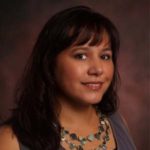 Reva Shaw is a member of the Menominee Nation and is training for a masters in exceptional education and certification in special education at the Electa Quinney Institute at the University of Wisconsin- Milwaukee. She chose to go into the field of education after over 20 years in Human Services because she is very concerned about the disproportionality of Native American students in Special Education and hopes to make a difference The institute’s aim is to strengthen and celebrate American Indian education with strong connections to indigenous teaching practices around the globe.
Reva Shaw is a member of the Menominee Nation and is training for a masters in exceptional education and certification in special education at the Electa Quinney Institute at the University of Wisconsin- Milwaukee. She chose to go into the field of education after over 20 years in Human Services because she is very concerned about the disproportionality of Native American students in Special Education and hopes to make a difference The institute’s aim is to strengthen and celebrate American Indian education with strong connections to indigenous teaching practices around the globe.
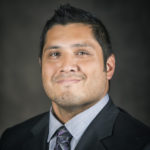 Ernest Stevens III, a member of the Oneida nation, is the regional director for the 7G Foundation, a collection of entrepreneurs, coaches and tribal leaders molding the next generation of Native leaders. He is also founder and president of the Indian Gaming Esports Association. Stevens was invited to the United Nations for the Media for Social Impact event as a panelist representing Indigenous Nations. He has also been recognized on a national level for his efforts in Tourism, Film, TV, and Marketing.
Ernest Stevens III, a member of the Oneida nation, is the regional director for the 7G Foundation, a collection of entrepreneurs, coaches and tribal leaders molding the next generation of Native leaders. He is also founder and president of the Indian Gaming Esports Association. Stevens was invited to the United Nations for the Media for Social Impact event as a panelist representing Indigenous Nations. He has also been recognized on a national level for his efforts in Tourism, Film, TV, and Marketing.
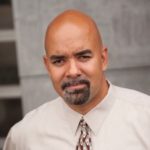 Christopher Kilgour is tribal programs manager for the Information Technology Academy at the UW-Madison, where he coordinates efforts to bring Lac du Flambeau and Oneida youth into IT programs at UW. He is also founder of Color in the Outdoors, a nonprofit organization dedicated to advocacy, engagement, education, and community networking organization focused on diversity, equity, and inclusion in the outdoor world locally, regionally, nationally, and globally.
Christopher Kilgour is tribal programs manager for the Information Technology Academy at the UW-Madison, where he coordinates efforts to bring Lac du Flambeau and Oneida youth into IT programs at UW. He is also founder of Color in the Outdoors, a nonprofit organization dedicated to advocacy, engagement, education, and community networking organization focused on diversity, equity, and inclusion in the outdoor world locally, regionally, nationally, and globally.
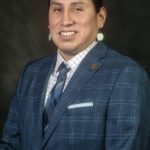 Brandon Yellowbird Stevens serves as Vice Chairman for the Oneida Nation. He is also a veteran Oneida Business Committee member. Stevens was raised on the Oneida reservation and is part of the Turtle Clan. He enjoys being active and spending time with family, playing basketball and attending community events.
Brandon Yellowbird Stevens serves as Vice Chairman for the Oneida Nation. He is also a veteran Oneida Business Committee member. Stevens was raised on the Oneida reservation and is part of the Turtle Clan. He enjoys being active and spending time with family, playing basketball and attending community events.
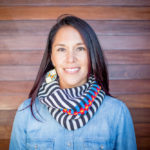 Sasānēhsaeh Jennings, a member of the Menominee Nation, is the Native American Student Success Coordinator for the University of Wisconsin System. Jennings began working with the University back in 2007 working as both the Associate Student Services Specialist and the Student Services Specialist. In 2010, she moved to the University of Minnesota, College of Science & Engineering, working first as the Transfer Coordinator/Academic Advisor for College of Biological Sciences followed by the Assistant Director of Diversity & Inclusion. Jennings ended her time with Minnesota in 2018, returning to where she holds her current position. She has an undergraduate degree in Sociology and American Indian Studies and a graduate degree in Educational Leadership and Policy Analysis from the UW and received her Ph.D. from the University of Minnesota in Organizational Leadership Policy and Development.
Sasānēhsaeh Jennings, a member of the Menominee Nation, is the Native American Student Success Coordinator for the University of Wisconsin System. Jennings began working with the University back in 2007 working as both the Associate Student Services Specialist and the Student Services Specialist. In 2010, she moved to the University of Minnesota, College of Science & Engineering, working first as the Transfer Coordinator/Academic Advisor for College of Biological Sciences followed by the Assistant Director of Diversity & Inclusion. Jennings ended her time with Minnesota in 2018, returning to where she holds her current position. She has an undergraduate degree in Sociology and American Indian Studies and a graduate degree in Educational Leadership and Policy Analysis from the UW and received her Ph.D. from the University of Minnesota in Organizational Leadership Policy and Development.
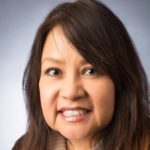 Missy Tracy, a member of the Ho-Chunk Nation, was appointed by Gov. Tony Evers in Juy 2020 to be the marketing/promotion experience representative of the Council of Tourism. Tracy’s term is effective until July 1, 2023. Tracy has been the Municipal Relations Coordinator at the Ho-Chunk Gaming Madison since 2014 and was also the Senior Public Relations Manager for Ho-Chunk Gaming Wisconsin Dells.
Missy Tracy, a member of the Ho-Chunk Nation, was appointed by Gov. Tony Evers in Juy 2020 to be the marketing/promotion experience representative of the Council of Tourism. Tracy’s term is effective until July 1, 2023. Tracy has been the Municipal Relations Coordinator at the Ho-Chunk Gaming Madison since 2014 and was also the Senior Public Relations Manager for Ho-Chunk Gaming Wisconsin Dells.
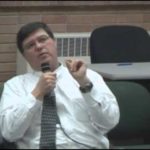 Lawrence Barton is a member of the Oneida Nation and has been the Nation’s chief financial officer (CFO) for 12 years. The position is part of the finance committee (FC), which is a standing committee of the Oneida Business Committee (OBC) that reviews financial requests from various departments. In 2013 Barton received national recognition for his work within the Oneida Tribal organizations at the 31st NAFOA Conference.
Lawrence Barton is a member of the Oneida Nation and has been the Nation’s chief financial officer (CFO) for 12 years. The position is part of the finance committee (FC), which is a standing committee of the Oneida Business Committee (OBC) that reviews financial requests from various departments. In 2013 Barton received national recognition for his work within the Oneida Tribal organizations at the 31st NAFOA Conference.
Who did we miss? Email nominations for next year’s list to [email protected]!

























